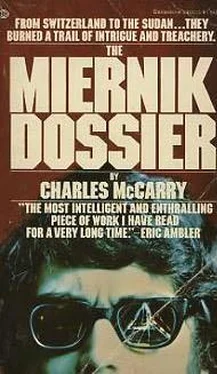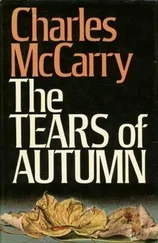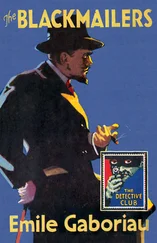The violinist, a small, shriveled man wearing round smoked glasses (not sunglasses-old-fashioned smoked lenses, almost black), scuttled across the floor to the Germans’ table. He smiled and asked in broken German if he could play a German song for them. The man who had danced with the child gave him a cursory glance and named a song. The violinist played it. The other German requested a different song. None of the Germans paid any attention to the musician as he played; they went on with their conversation, laughing across the table at one another.
The Germans began by asking for songs everyone knows: Röslein, Die Lorelei, and so on. Then they changed to a long list of obscure German drinking songs. They gave the violinist no rest between tunes. As soon as he completed one they asked for another and demanded that he play each faster than the one before. “I want to see your fingers dance, Maestro,” said one of the Germans with a guffaw. He and his friends began giving the instruction in unison: “Più rapido!”The violinist obeyed them. He tap-danced around the table, pointing the neck of his violin at the ceiling and floor, wiggling his hips, smiling in a crazed desire to please. It was Pavlovian. Zofia said, “That man must have been in one of their camps.” I believe she was right. The skin of his face was drawn back in a desperate grin, his body jerked. It was like watching a skeleton dance out of the gates of Dachau.
In the middle of a tune, the Germans rose. The violinist continued his jig, the grin fixed on his face. He was running with sweat. The Germans dropped money on the table to pay their bill. Then the one who had danced with the child gave his companions a humorous wink. He took a thousand-lira note out of his pocket, spat on it, and slapped it on the violinist’s sweaty forehead. It stuck there. The violinist gave a high giggle and kept on playing with his head thrown back so the bill would not fall off.
Miernik’s chair went over backwards. He was standing and speaking to the Germans. He held a table knife in his hand. The Germans stood their ground, either astonished by this display of bad manners or unfrightened by a one-armed man with a dull knife. One of the German women carried a Pekingese in her arm; throughout the meal and the violin concert she had been feeding it and talking to it.
“One moment,” Miernik said. “I want to kill your dog.” The woman shrieked, and a look of real horror came into her eyes. Her husband stepped between the dog and Miernik. “You are drunk,” he said.
“Quite sober,” Miernik said. “Hand over the dog. We have been watching you and we have our orders. The dog must die.”
The German turned on his heel and began to herd his friends toward the door. “Halt!” Miernik shouted. “Come back or I shoot.” The Germans stopped and turned around again-all except the woman with the dog. She now had both arms around the animal. She stared at Miernik over her hunched shoulder. “You are insane,” she cried.
“How long have you been hiding this dog?” Miernik asked in the loud German he was speaking. “Speak up-and remember there are witnesses present.”
“Who are you?” asked the German. “You are not a German.”
“My name does not matter. It is enough that you know that I am an officer in the Dog Death Brigade. You have forgotten that dogs are not human beings. They are dogs. Dogs. Dogs who are shitting on our sacred soil, taking food from the mouths of good human children.”
The violinist looked from Miernik to the Germans, and his giggle changed to a spasmodic, snorting laugh. He had heard this sort of talk somewhere else. With his hand over his mouth, he scuttled away, the thousand-lira note fluttering to the floor behind him.
“If you did not have that arm in a sling,” the German said, “I would slap your face for you.”
“I don’t doubt it for a moment,” Miernik said. “Your late leader, Reichsführer Himmler, would do practically anything to protect a dog. He may be dead, but the kingdom of his ideas lives on. Take your dog and go. But remember: one day soon the gutters will run red with the blood of dogs.”
The German put his arm around his wife, who by this time was sobbing as she reassured her Pekingese in baby talk. They left. Miernik poured wine for all of us, and sat down.
For the remainder of the meal we talked about Puccini. Miernik believes that romantic composers prepared the ground for totalitarian politicians: both deal in illusions, knowing that the illusions people have about themselves as individuals and as nations are stronger than reality.
Miernik and Zofia retired early. Kalash, walking around the silent town with Collins and me, chuckled over our translation of Miernik’s confrontation with the Germans. “It’s nice to see him show a little wit,” Kalash said. “But you Europeans really are tribalistic. No hope for you, I’m afraid, until you pass out of this primitive stage and learn to be more cool-headed about all these enmities and superstitions.”
Later, passing Zofia’s room, I stopped, meaning to knock. Through the door I heard her voice and Miernik’s, speaking in Polish. I have to report that I felt no curiosity at all about what they might be saying; I was, instead, happy that Miernik at last had someone besides me to talk to late at night.
22 June. Uneventful day, except for what sounded like a raging argument between Zofia and Miernik in Polish as we sped down the autostrada toward Naples. Thinking that there might be some substance in what they were saying, I used my dandy Zippo for the first time. This is not, incidentally, the least conspicuous device you could have given me. I don’t smoke, so I have to manipulate it inside my pocket. I leave you to struggle with the tapes. The car will be in the garage of the Albergo Commodore tonight. It will be loaded on the ship at eight o’clock tomorrow morning.
46. TRANSCRIPT OF MIERNIK AND ZOFIA MIERNIK, 22 JUNE, “CADILLAC LOG” (TRANSLATION FROM POLISH).
ZOFIA:… not going to be a very pleasant ride if you go on like this. We went over all this last night.
MIERNIK: Zofia, you never change. You do something horrid and then put the blame on those who want to help you.
ZOFIA: Horrid? How horrid? I am an adult, Tadeusz, and I made the decision as an adult. There was nothing for me where I was. I was learning nothing.
MIERNIK: But simply to quit without telling me. It was unfair- not to say dishonest. I should think you could have trusted me. And poor Sasha. When he couldn’t find you, think how he must have felt.
ZOFIA: Sasha found me. He understood perfectly.
MIERNIK: I don’t understand perfectly. You throw away your university degree, you go to live with a lot of scruffy people who call themselves artists, who are under constant surveillance by the police. It’s unbelievable. You might have put everything in danger. Suppose the whole group had been arrested? How would Sasha have found you then?
ZOFIA: But all those things did not happen, Tadeusz. Sasha found me, I am here, all is well. And I have no use for a degree from Warsaw University that means nothing.
MIERNIK: Nothing? It means the difference between a life as a professional, a teacher perhaps, and life as an outcast. Even in the West they attach some importance to education.
ZOFIA: Tadeusz, I don’t want to teach. I am not a professional type. You are. I’m not. Also, I’m capable of taking care of myself.
MIERNIK: Living five in a room with men and girls together, with no bath, with no proper papers? If that’s how you take care of yourself… We spent years building up a certain picture of you, and you tear it up on a whim.
ZOFIA: Tadeusz, I wasn’t in any danger. I was quite happy, in fact. That’s something, isn’t it? To be happy in Warsaw while one is young? It was nothing terrible. Now, thanks to you and Sasha, it’s done with. If I ever want to go back to a university I can do it.
Читать дальше












